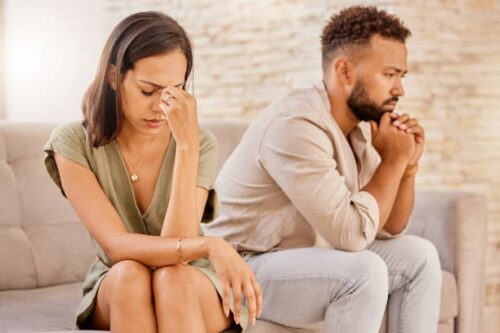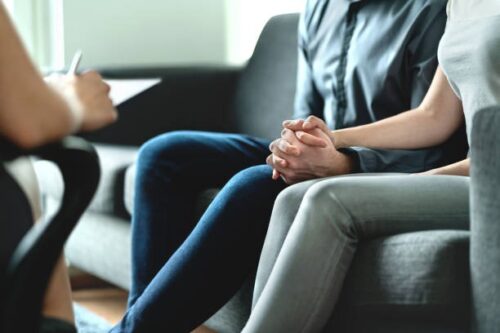
People may have imagined “happily ever after” when they decided to marry their loved one, move in with them, or make a long-term commitment to a relationship. However, maintaining a long-term relationship with someone else takes work.
Partners or couples may sometimes disagree or struggle to agree on some issues. Thankfully, like occupational therapy, couples therapy and counseling can teach them how to communicate with each other efficiently, opening the door to a happy, mutually beneficial relationship. It also supports cognitive restructuring and promotes a better understanding of care providers birp notes that can be useful in the near future treatment session.
Find out more about relationship therapy or counseling’s advantages, the value of couples counseling, and how it may assist couples through mental health progress notes or soap notes.
Goals Of Couples Therapy
The objectives of couples therapy are primarily determined by the reasons couples initially sought consultation. During the first few sessions, both couples might collaborate with a counselor or therapist to create a list of goals.
For instance, they may decide how to establish a family or work with their partner to create a plan.
Gaining better communication skills is another typical objective of couples counseling. For instance, couples could establish ground rules for communication and disagreements. Other potential goals for couples therapy include reestablishing love, building respect, developing strong intimacy, restoring faith, and finding a peaceful life together.
Helping partners make positive life changes is the aim of relationship therapy. Since it’s frequently the first setting at which individuals receive treatment with the help of progress notes and discuss personal ideas, convictions, and feelings about their issue(s). This kind of relationship is crucial, and the therapist should create a setting that is open, judgment-free, and safe so that the couples undergoing relationship therapy feel comfortable.
Reasons to Seek Couples Counseling
Contrary to the persistent misconception that couples therapy or counseling is just for lovers having difficulty maintaining their relationship, couples therapy has benefits that all kinds of relationships may enjoy. Whether couples are significant other harmonious or deeply in love with each other, engaging with a counselor or therapist can strengthen their bond.
The following are a few advantages of relationship therapy.
Improves Communication
Though adequate expression of feelings and thoughts is important for a good and healthy relationship, only some possess this capacity. Couples or spouses can discover efficient techniques for communicating their worries and feelings by working with a therapist or counselor. In the process, they may work on developing their communication skills and deciding when and where to have tough talks. Couples will be allowed to express themselves without fear of judgment and rejection. They will learn to listen and care for their partners as they validate their emotional concerns.
Offers A Safe Place
Partners find a safe place when they engage in a couples therapy session. That is because they are aware that the therapist or counselor will keep whatever information they disclose private. Additionally, couples can be confident that the therapist won’t take sides throughout the session and will maintain objectivity. Throughout the course, every individual will have an opportunity to express themselves and allow others to listen attentively.
Enhances Empathy And Understanding In The Relationship
Attending couples counseling or therapy can improve the couple’s understanding of each other. Over the course of multiple therapy sessions, individuals may get fresh eyesight of what they went through all their committed lives and will focus on what they want to achieve in the following years. Couples may gain deeper insight into their ideas and experiences.

Helps In Conflict Resolution
Conflicts arise in the relationship, as always. There are certain things that couples often argue about, which include monetary issues, freedom of expression, friends and family relationships, hobbies, and so on.
With that, both should realize that the key to a long-lasting and satisfying relationship is understanding how to resolve conflicts. When couples find it difficult to get past problems or choose to ignore them, resentment may grow. Thus, they must learn conflict resolution techniques and relaxation techniques that they can apply in their sessions and in the future.
Aides In Overcoming Obstacles In Life
Even the happiest couples will encounter challenges in life, including infertility, psychological issues, emotional problems, traumatic experiences, and financial difficulties.
According to positive psychology, a therapist can help these loving individuals overcome these challenges by guiding them through and teaching them the necessary skills. Some of these can include time management, anger management, stress management, financial literacy, communication skills, emotional intelligence, and more.
Provides A Sounding Board
Usually, couples ignore each other when faced with emotional issues. Sometimes, one of them felt that their partner wasn’t listening to them or addressing their concerns. Fortunately, counseling sessions can provide a space where both feel comfortable sharing their ideas.
Both couples can have a sounding board where they can be able to enumerate their mental and emotional struggles to their partners and allow them to open up with their feelings.
Who Should Go to Couples Therapy?
What is involved in couples therapy? It can be viewed as relational first aid for couples going through different kinds of life difficulties. It can also benefit happily married couples who wish to maintain the strength of their union. These are a few instances of the individuals that stand to gain from couple’s therapy. Here are some of them.
Couples Dealing With Mental Or Physical Health Issues
Receiving a diagnosis of a mental or physical illness can put a strain on an otherwise strong bond. One person may decide to care for their ailing companion on their own. The sick partner, meanwhile, may feel like a burden to their relationship. Couples who are struggling with their health might find a way forward with the aid of relationship counseling.
Couples With Differing Attitudes Toward Money
Although it’s frequently a taboo topic, finances may be a problematic issue for a lot of relationships. If couples enjoy spending, they should set aside money instead. Alternatively, couples may disagree on where to put their money or what kind of goals to create for their financial affairs. Through therapy counseling, spouses can create a plan for jointly managing spending habits or get on the same page regarding finances.
Couples Who Want To Start A Family
Making it a point to have kids with someone else is a significant decision that opens up a world of options. If infertility is a problem, couples may need to make decisions about how to conceive the kid, such as using IVF, using a surrogate, or adopting. Additionally, couples will need to agree on the child’s upbringing. Spouses can develop a strategy for starting a family with the assistance of counseling sessions.
Couples Coping With Infidelity
The other person is going to feel broken and deceived when one of the couples cheats. However, if both parties wish to make things better, an affair need not mean the end of their relationship. Couples can overcome infidelity with the aid of counseling as it allows them to recall and realize reasons why they stick and stay with their partners in the first place.
Couples Who Want To Deepen Their Bond
Couples therapy is beneficial even if couples are not having problems. Some of them attend group therapy sessions to enhance their communication and address conflicts before they become major issues.

Importance Of Relationship Therapy Documentation
A crucial first step in the healing process is developing a therapeutic relationship, and for the partnership to be fruitful, trust is essential. A couple looking for therapy must believe that their chosen therapist has the expertise, aptitude, and motivation to deliver the right care.
A couple undergoing therapy and identifying triggers must also have confidence that information will be kept private and that they are secure, as the therapeutic relationship has a power dynamic that heavily benefits the therapist. An effective progress notes secure this.
Most patients ask themselves, “Will this type of therapy be successful in assisting me with my problems?” before starting psychotherapy. Research reveals several factors influence treatment outcomes, such as the complexity of the problem(s) being addressed, the patient’s confidence in the professional ability to help, and the therapist’s level of expertise. They usually use the soap note format to monitor client’s progress.
However, since there is no clear record of what transpired in therapy without appropriate documentation, it is impossible to assess therapeutic effectiveness. Inadequate clinical procedures can almost be considered mistakes, in addition to being unfair to the couples undergoing the therapy treatment. As a result, the bar for mental health services is raised since a client appears to be more interested in objective data and a brief overview of the treatment program.
Written summaries of a couple’s treatment sessions are called couple therapy notes. The psychotherapist uses these written records to track goals and treatment plans, document themes covered and interventions made, and keep track of the course of therapy. Additionally, keeping a precise record of past therapies can help ensure that, in the event that clients change mental health providers, the new provider will have straightforward access to the couple’s history, course of treatment, and results.
It is important to realize that couples do not seek therapy because they are suffering from a mental health problem that can be diagnosed. They seek therapy in order to address relationship problems they wish to resolve. With the aid of documentation, a lot of excellent work may be completed in six months, and by then, the couple might have figured out how to continue proving the need for therapy and obtaining the sessions they need to keep receiving the assistance they need. Unlike progress notes, ordinary records can be misinterpreted, and some mental health practitioners may forget the specifics of a patient’s treatment plan. Thus, a progress note can be vital in keeping track of a mental health condition or well being along with the patient’s progress.
Book a Couples Counseling Session
A relationship with a special someone is not exempted from issues, challenges, or misunderstandings that arise in any intimate relationship. But another important factor in the lasting happiness of the relationship is how the partners work through these challenges together. It’s critical to realize that couples therapy progress notes and a treatment plan can improve problematic regions in a couple’s relationship or fortify an already solid bond with these people. To address the concerns, speaking with a certified family and marriage counselor is important.
Frequently Asked Questions (FAQs)
What Is The Meaning Of Relationship Therapy?
What Is Relationship Technique?
What Is Relationship Counselling?
Why Is The Relationship With Therapist Important?
What Type Of Therapy Is Used For Relationships?
What Is The Most Important Part Of Therapy Relationship?
What Are The 5 Types Of Therapeutic Relationships?
Is Relationship Therapy Normal?
Can Relationship Therapy Work?
How long is relationship therapy?
How do you build a therapeutic relationship?
How successful is relationship Counselling?
What are the key components of a therapeutic relationship?
What are the fundamentals of therapeutic relationship?
What are the main features of therapeutic relationship explain?



